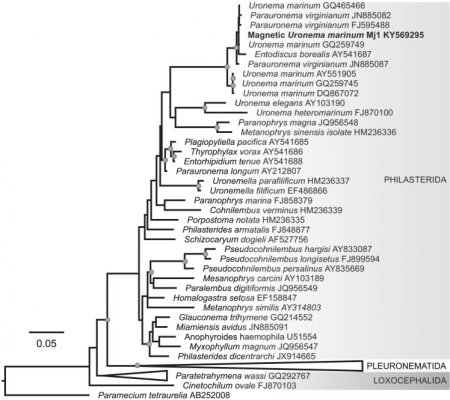I had an eDNA sample from my tank come back positive for Uronema heteromarinum.
I can’t find any info about this organism causing disease in fish.
Does anyone have any information about this strain of Uronema and if it is harmful to fish?
I can’t find any info about this organism causing disease in fish.
Does anyone have any information about this strain of Uronema and if it is harmful to fish?


















